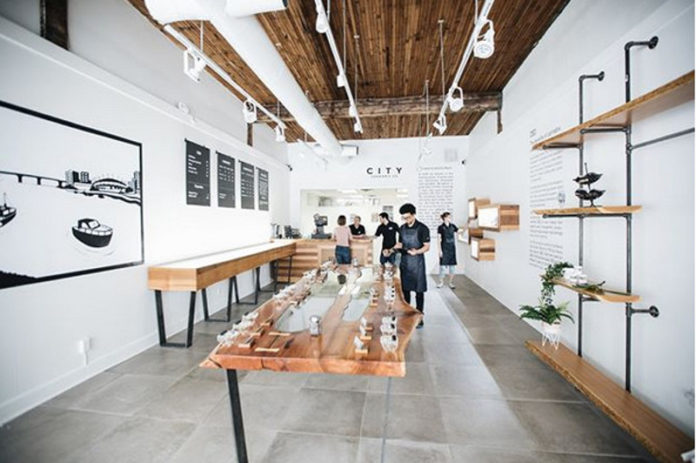It’s been more than eight months since recreational cannabis was legalized in Canada, yet gaining municipal support has proven troublesome in some communities.
Andrew Gordon, Senior Vice President of Strategic Partnerships and Community for Kiaro, has been working to build acceptance for cannabis retail since 2015.
“Working to build understanding around some of the challenges and issues and concerns communities have, and being a consistent voice in positive, purposeful messaging,” he told BotaniQ Magazine.
Common concerns include the potential impact on the community around cannabis consumption, as well as responsible cannabis use in the workplace.
“You look at the legacy of the unregulated cannabis sector and what that did to skew the view of the public and regulators about what these type of operations look like. What I’m able to convey because of the structure and certainty of the regulated environment is a positive impact, both socially and economically.”
You deserve star treatment, sign up to become a VIP on the Kiaro website. Be the first to know what’s happening, and receive exclusive VIP invites: https://t.co/fb5Hoa9Sj8#MyKiaro #VIP #Exclusive #CannabisCommunity pic.twitter.com/lYe48T43X1
— Kiaro (@mykiaro) May 3, 2019
Gordon pointed to studies out of the U.S. that reveal crime trending downward in areas that have gone through legalization in the past five years.
“There is a net positive impact for regulated cannabis in communities. The data is encouraging,” he said. “There is a huge economic windfall, tax revenue, job creation, as well as eroding the entrenched illicit market.”
Gordon noted the federal government has been clear on its two goals: keeping cannabis out of the hands of children and eliminating the black market.
“We want to protect the vulnerable members of society and the regulated environment helps do that.”
The tax revenues are also significant.
“It’s being predicted it will be a nearly $1 billion industry for 2019. Taxes that filter down from that, just through October and March was almost $200 million. That’s significant for communities. Provinces are also taking a big chunk from that.”
Those dollars are being used for enforcement and education surrounding cannabis, said Gordon, but also for schools, emergency services, health care, infrastructure and more.
“It’s social good it’s impacting. But the regulated market is still kind of slow out the gate.”
That is due, at least in part, to some communities and provinces that are still taking a prohibitionist approach to their regulations.
“Communities not in support of this are, really, indirectly helping to perpetuate the illicit market continuing to thrive,” he said. “Ontario or Quebec, for example, there’s been significant concern with some of the policies and application processes that’s allowing the illicit market to continue.
“For example, raising the legal age to 21 in Quebec, that pushes people under 21 into the illicit market where there aren’t quality controls, and it also takes away tax revenue. That hard line approach perpetuates stigma and hinders accessibility,” he said.
Ontario has adopted an approach that has helped the black market, said Gordon.
“They’ve been slow out the gate with retail stores. And then there’s store hours being cut down. You have to be mindful of pushing the conversation in that direction. Structure and regulations provide tremendous benefits for communities. The illicit market is a big bell to ring in terms of getting peoples’ attention. It takes tax revenues out of communities and instead continues to fund organized crime.”
At the municipal level, Gordon noted Surrey, B.C. is one that has taken a prohibitionist approach.
“We need to be very mindful again of fighting the stigma that continues to prevent growth and really inhibits a lot of activity and action that can happen that’s positive and purposeful,” he said. “I continue to be optimistic and I think you need to engage with regulators at the municipal and provincial levels. You move mountains by carrying away small stones, and we are seeing progress.”
Being at the birth of a new industry has been exciting, said Gordon.
“But Rome isn’t built in a day.”
“There’s still a lot of work to be done. Legalization day was nothing more than a start of an entirely new thing. Even for people in the sector before, or new to it, there’s tremendous challenges but also the opportunity to build the future the way we would like to see it.”
David Hutchinson, who describes himself as the unlikely advocate, jumped into the world of cannabis after losing his wife and daughter to cancer.
His daughter used cannabis to treat her brain tumour, and witnessing that launched Hutchinson on a journey to advocate for the plant’s medicinal benefits for cancer and other ailments.
As a Surrey resident, Hutchinson said he is “aghast” when he hears his Mayor Doug McCallum talk about cannabis.
“He says he doesn’t agree with it and we’ve got enough problems. But think about the educated and informed opportunity. If it’s legal in the rest of Canada then it will be available and if you don’t allow retail in the confines of Surrey, people will be buying it and selling it out of the back of vehicles. You’re creating a black market.”
Hutchinson said he’s heard McCallum speak about focusing, instead, on reducing gang activity.
“This is only going to make it worse,” he said of the prohibitionist approach to cannabis. “He’s got a very strong opinion on this and I’d call it an uneducated opinion.”
According to Hutchinson, “people deserve better support from politicians, not just pandering to old-school opinions that this is bad, it’s a drug, so we’re not going to allow it. That has passed, we should’ve moved on from that now. We deserve politicians who are educated and enlightened. We need full and open access.”
Recently, a grassroots campaign has launched that’s focused on highlighting the benefits of legal cannabis retail called Say Yes to Safe.
Do you agree? RT to help us share the truth about cannabis retail in our communities! pic.twitter.com/Bya1abrYb1
— Say Yes to Safe (@sayyestosafe) June 26, 2019
The group’s website states its mission is to “provide fact-based information on cannabis retail.”
Their website highlights similar positives to Gordon and Hutchinson: the fact that regulated cannabis shops provides economic development via tax revenue; the legal industry ensures regulated, tested and quality products; and can reduces cannabis-related crime by eliminating the black market.
Learn more at sayyestosafe.ca.



















